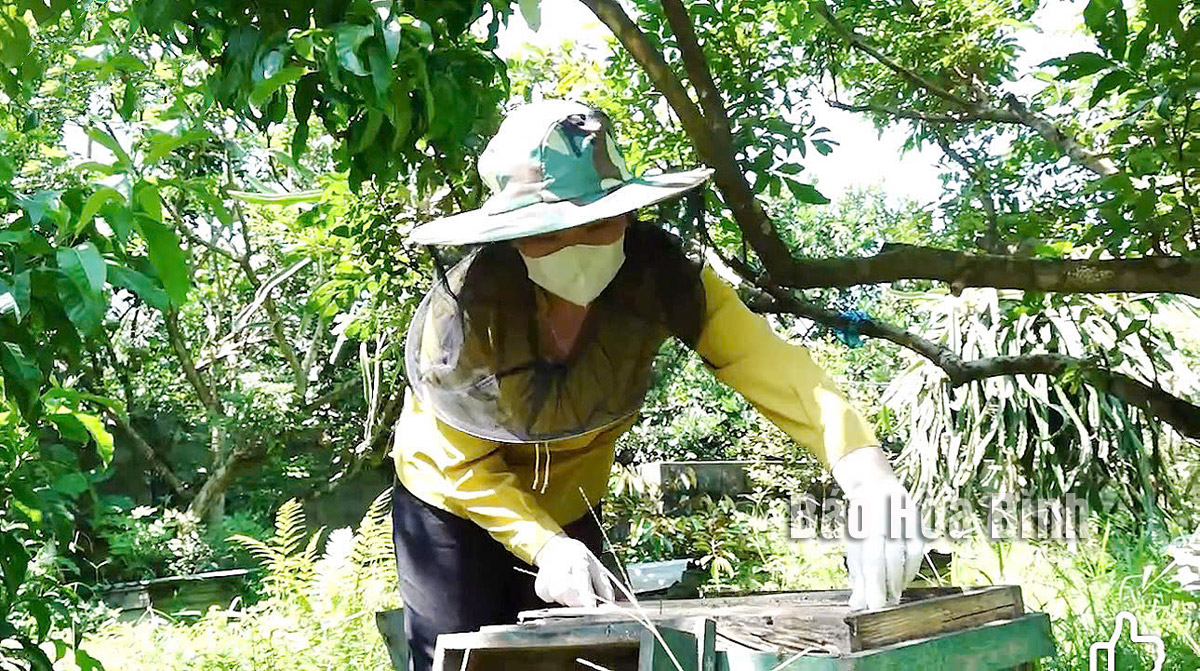
To have good quality honey, the beehives of Green Life Cooperative, Hop Tien Commune (Kim Boi) are located in areas close to the forest.
"Heaven's gift" from Muong Dong forest
Hop Tien Commune is located in Thuong Tien Nature Reserve (Kim Boi), known as a locality with a number of endemic agricultural products such as honey, safe vegetables, free-range chickens, native pigs, etc. In the special-use forest area, there are many precious medicinal plants such as xạ đen, ba kích, etc., which are ideal conditions for developing honey beekeeping. Since around 2000, honey beekeeping has created livelihoods for many families. By 2021, Green Life Cooperative, Hop Tien Commune, with Mr. Dinh Cong Thuan as Director, was established. Young people with similar aspirations and ideas have gathered together and joined the Cooperative to start the journey of green, environmentally friendly agricultural production, diversifying clean and safe products from local honey sources, helping to improve livelihoods and build brands for the commune's agricultural products.
In the tidy factory, the honey jars are carefully labeled, capped and checked by the cooperative members for the last time after completing the steps to detect errors and stains. Last year, along with consumption in the domestic market, Hop Tien wild honey was introduced and sold in the Korean and British markets. Mr. Dinh Cong Thuan, Director of Green Life Cooperative shared: In order for the product to meet food safety requirements, especially the requirements of demanding importing countries while still maintaining its sweetness and aroma, all honey after collection is processed to separate the water inside using the water-lowering technology.
Accordingly, the honey dewatering process begins with the rough filtering stage, the honey is filtered through a stainless steel sieve, then heated indirectly to kill unwanted microorganisms and yeast. After the pasteurization process, the honey is automatically sucked by vacuum into the fine filtering system to remove impurities, then sent to the dewatering section (vacuum evaporation) to separate the water and produce finished honey. The highlight of this stage is the dewatering at low temperature to help preserve the nutrients in the honey; effectively remove water, help the honey to be smooth and preserve longer. This process takes place in a sealed environment, the honey after dewatering has a humidity reduced to 18 - 19%, meeting the quality standards for export to the European market.
Comrade Bui Thanh Thu, Vice Chairman of Hop Tien Commune People's Committee said: Being blessed by nature with mild weather, terrain and rich and diverse plant resources, Hop Tien people have created drops of sweet honey with a unique flavor that cannot be found anywhere else. Hop Tien forest honey is one of the first two 4-star OCOP products of Kim Boi district, and is also the first honey product of the province to achieve 4-star OCOP certification. The quality is increasingly affirmed in the market, this product is now available in all regions of the country, even reaching the international market.
With the goal of constantly improving techniques to enhance product quality, aiming for export, Hop Tien honey is produced according to VietGAP, ISO 22000:2018 standards, with traceability stamps, full labels and bottled, glass jars, volume 1 liter, 500ml, 350ml with beautiful designs and forms and is expected to conquer foreign markets in the near future.
Shallots "stick" to Yen Thuy land
Shallots, also known as chives, have been grown in Yen Thuy district for many years. Currently, the whole district has nearly 100 hectares of chives, mainly concentrated in Phu Lai commune. From a spice used in daily meals, with the support of the political system and the efforts of farmers, chives have gradually become a commodity crop, contributing to the transformation of crop structure in agricultural production, bringing a good source of income for growing households. By 2020, Yen Thuy chives products had been granted a trademark registration certificate by the Intellectual Property Office. That was the premise for chive growers and production cooperatives to build and develop this brand. In 2022, Yen Thuy salted chives produced by Phu Lai Agricultural Cooperative were recognized as 3-star OCOP at the provincial level.
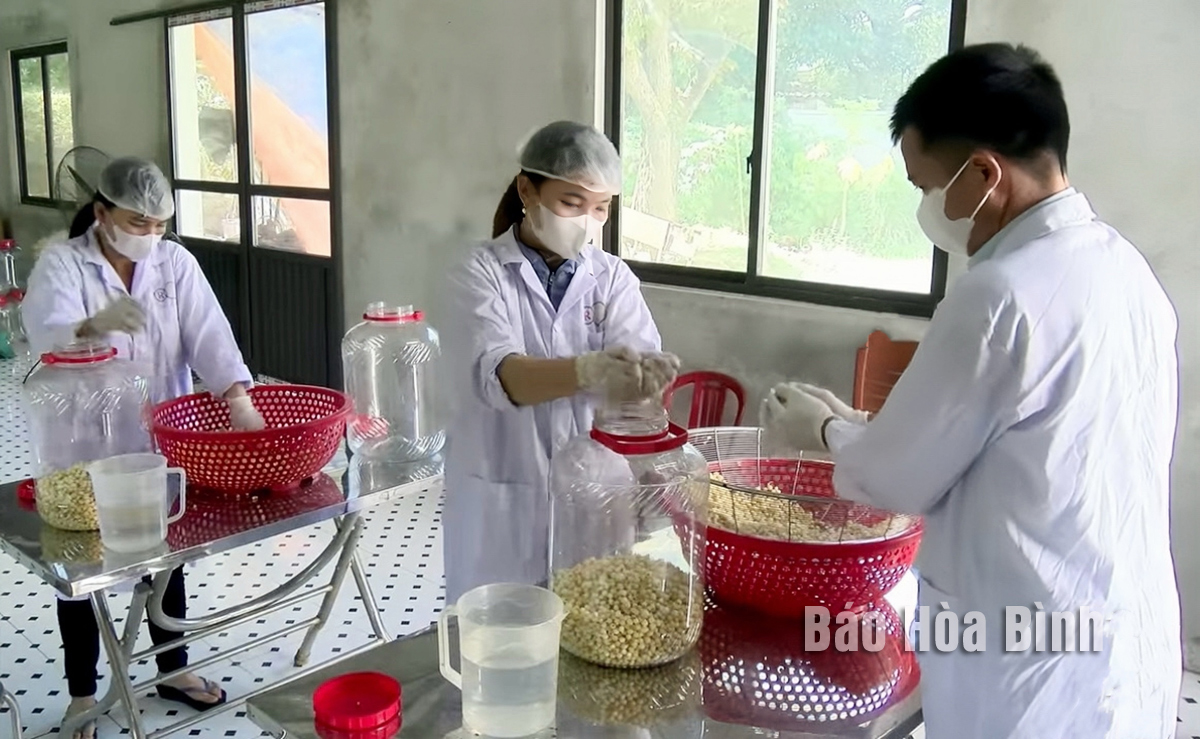
Phu Lai Agricultural Cooperative (Yen Thuy) absolutely does not use preservatives in the production process of pickled shallots.
Shallots are usually harvested in the summer-autumn crop. From harvesting to sorting, it takes a lot of time and effort, so to produce a quality, effective and safe salted shallot product is a whole process. The end of the year is the time when Phu Lai Agricultural Cooperative focuses on production to ensure enough supply to serve consumers' gifting needs during Tet.
Visiting the production area of the cooperative late at noon, members were still working hard to complete an order. After being harvested by farmers, the cooperative purchases shallots and proceeds to classify and process them. Onions of the same size, plump and white will be soaked in salt water and fermented according to the process. To keep the onions for a long time, crispy while still retaining the characteristic smell and precious medicinal essences inside, the pickled shallots will be put in glass jars for preservation. Ms. Nguyen Thi Hien, a member of the cooperative, said: In order for the product to meet export standards, the cooperative absolutely does not use preservatives in the production process. In addition, the ratio of ingredients to mix the brine to soak the onions must also be standard, only then can it be preserved for a long time. Each jar of pickled shallots is labeled, with a code, barcode, and traceability information. In addition, to serve the needs of customers as gifts, the cooperative prints full information and origin on the product bag. Export products are packaged by the cooperative to ensure specifications and requirements of the importing country with a weight of 390 grams/bottle.
The shipment of the first two processed agricultural products of the province to be officially exported and offered to the UK market, although the quantity is not large, is an important milestone in the province's agricultural export activities. At the same time, it affirms the potential and quality of key agricultural products as well as the level of intensive farming and production thinking of farmers, enterprises, and cooperatives producing and processing agricultural products in the province are increasingly improved.
Ms. Nguyen Thi Thanh Huong, CEO of RYB Joint Stock Company, said: Before exporting, the importer and the company carefully selected the products from thousands of OCOP products produced by localities. In particular, the two products Hop Tien wild honey and Yen Thuy salted shallots both have potential in foreign markets. Because these are two processed products, can be preserved for a long time, and can be used immediately. In particular, they are produced from natural sources and have good effects on the health of users, so they are completely suitable for the trends and needs of some current export markets. From the first order of the two products to the UK market, the company will coordinate with localities and production units to develop more markets and export orders if the products meet the needs of the UK market and develop more similar processed products with good quality and great potential in the future.
Source: https://www.baohoabinh.com.vn/319/197951/Muc-so-thi-co-so-co-san-pham-che-bien-xuat-khau.htm




















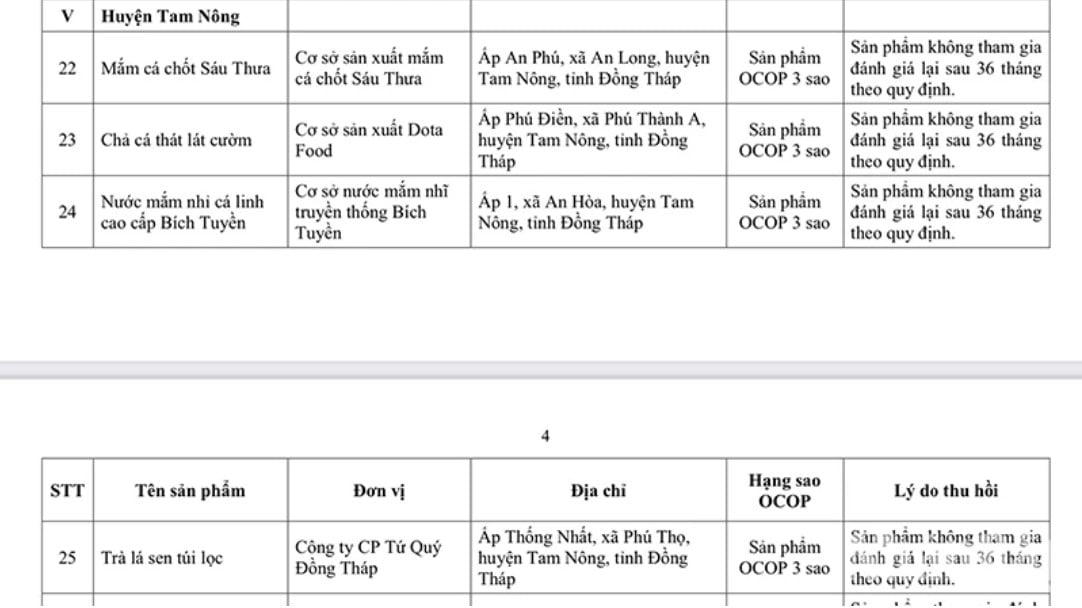

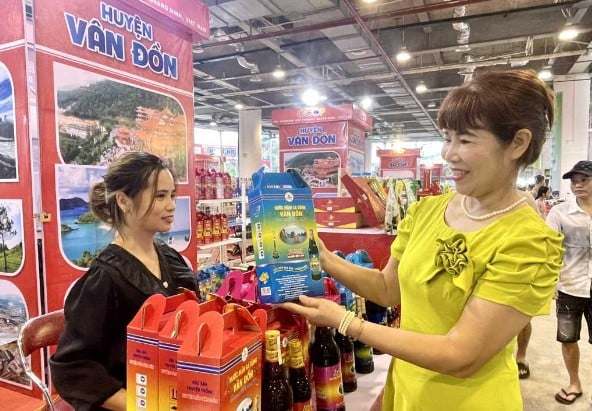

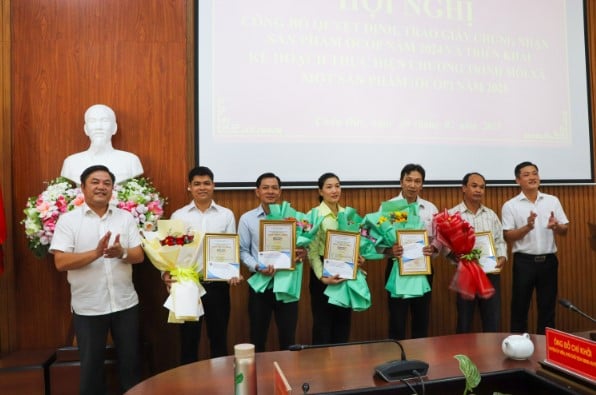

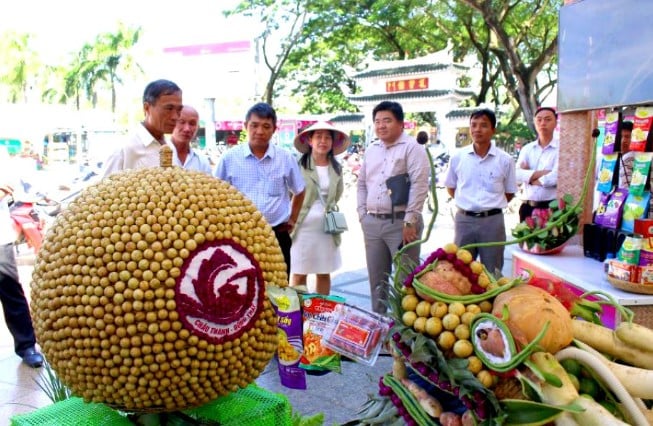



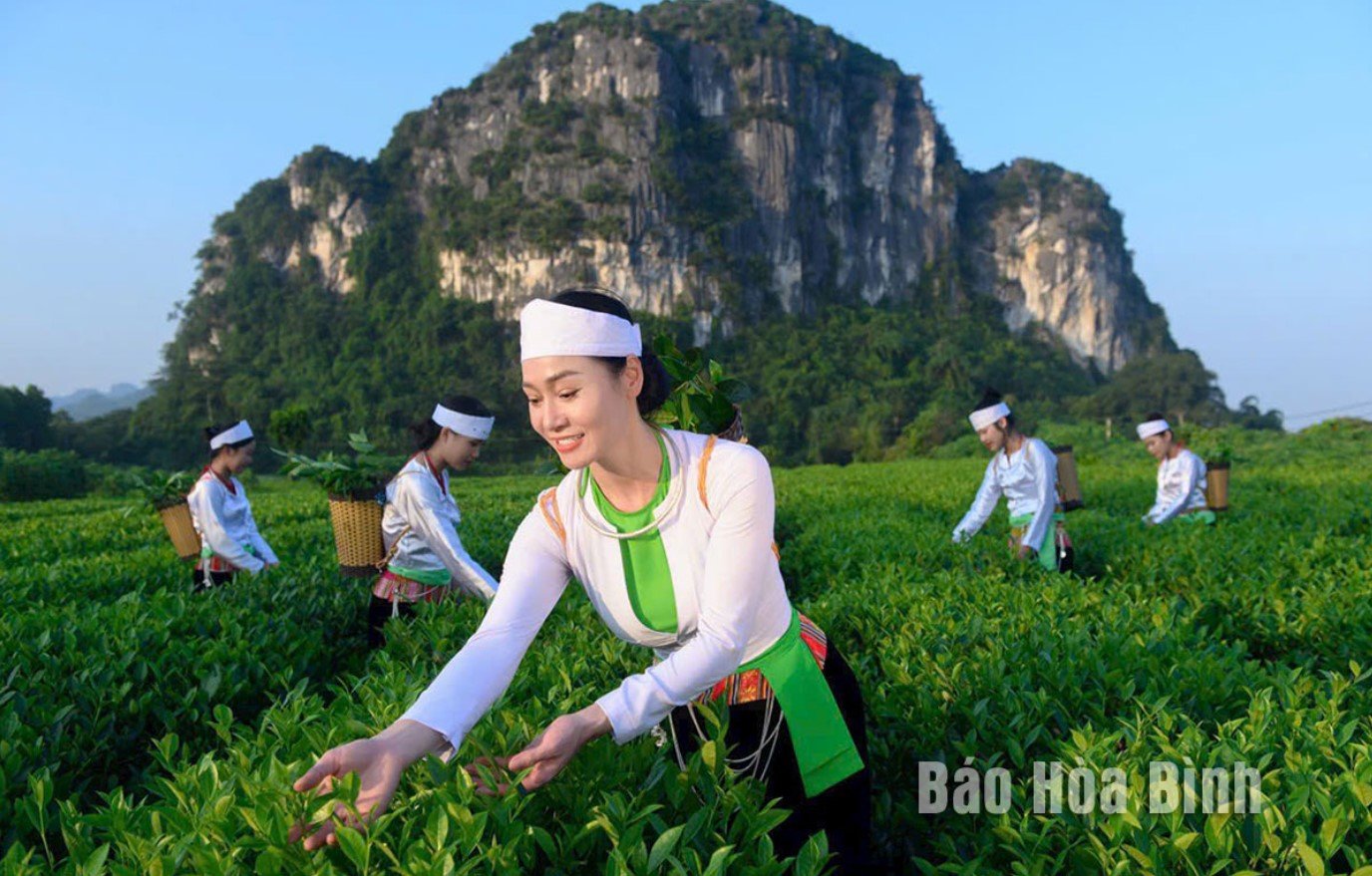
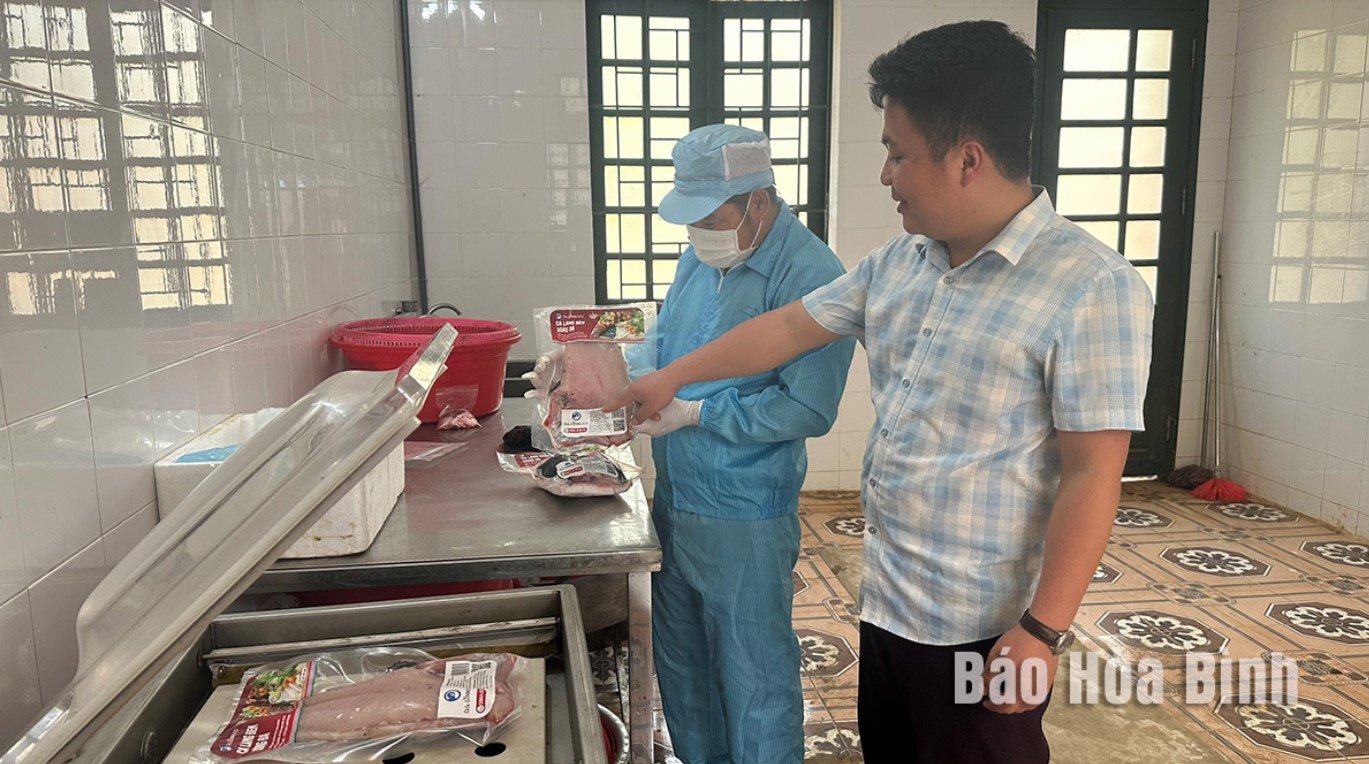
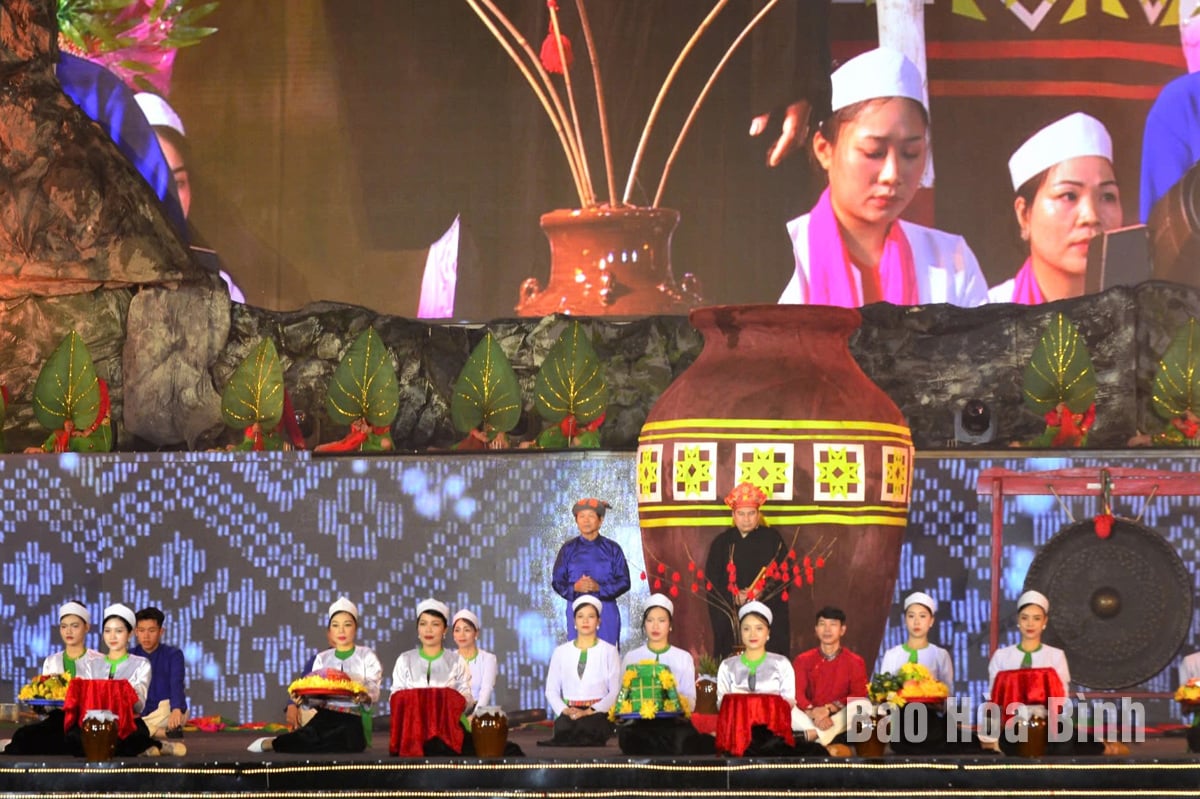
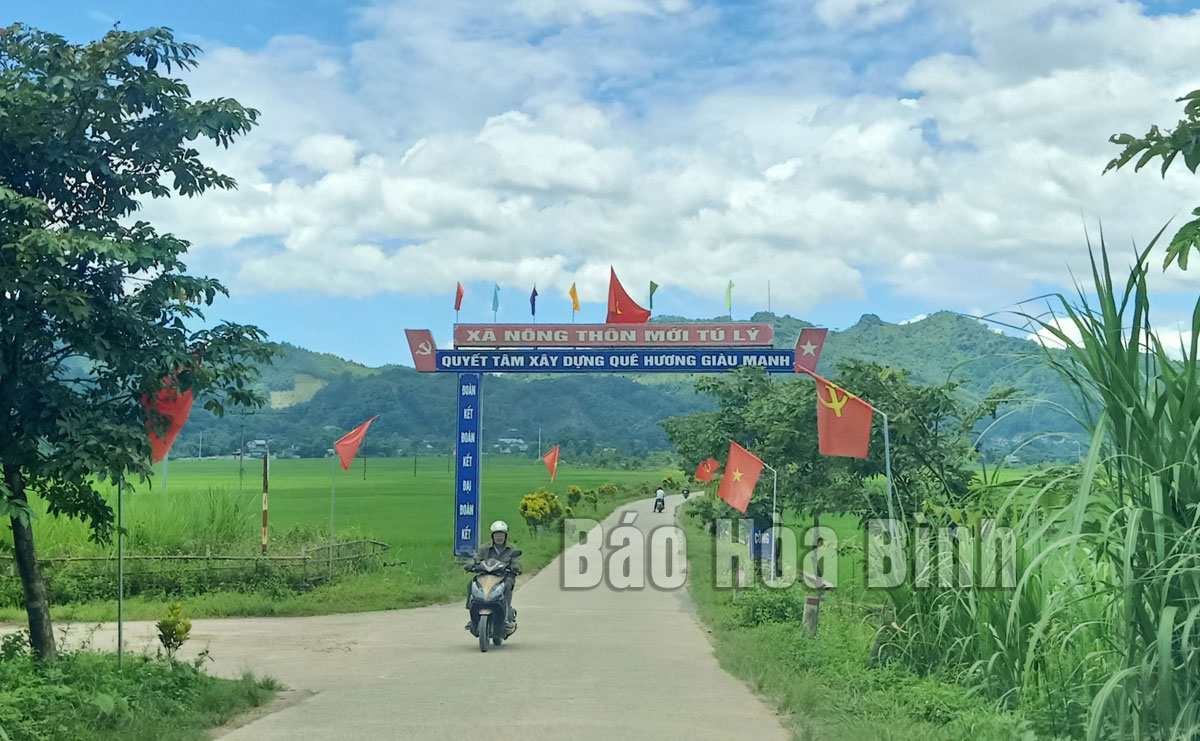









![[Photo] Prime Minister Pham Minh Chinh chairs Government Conference with localities on economic growth](https://vstatic.vietnam.vn/vietnam/resource/IMAGE/2025/2/21/f34583484f2643a2a2b72168a0d64baa)


















































Comment (0)